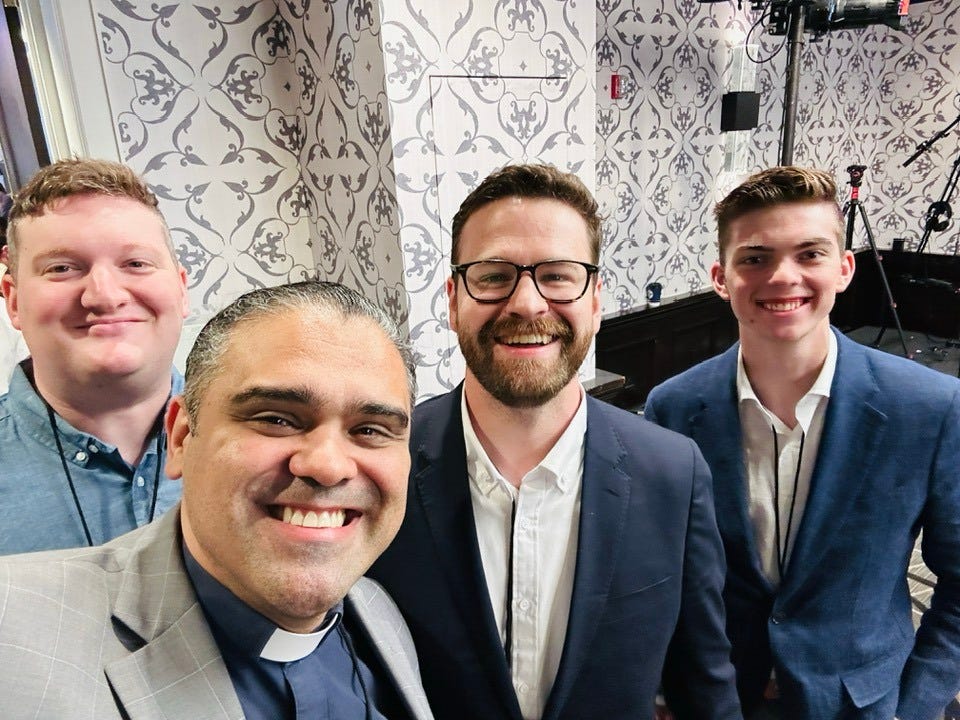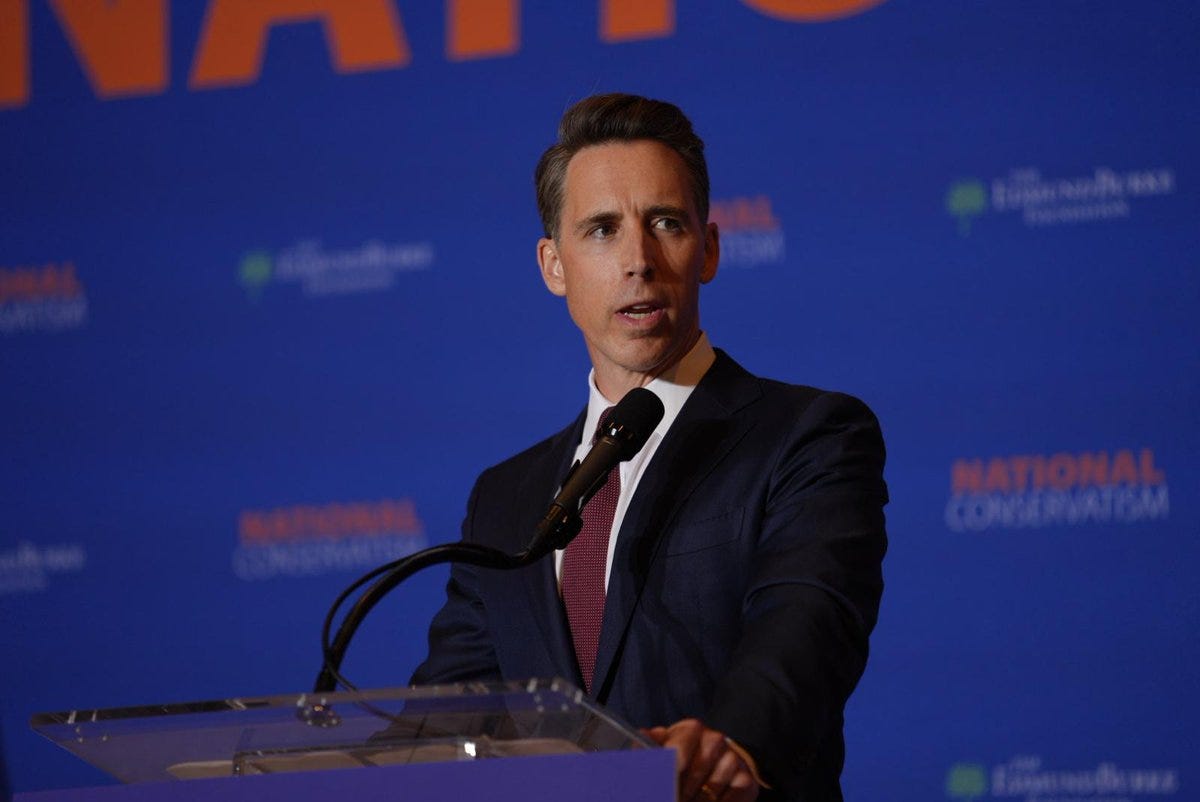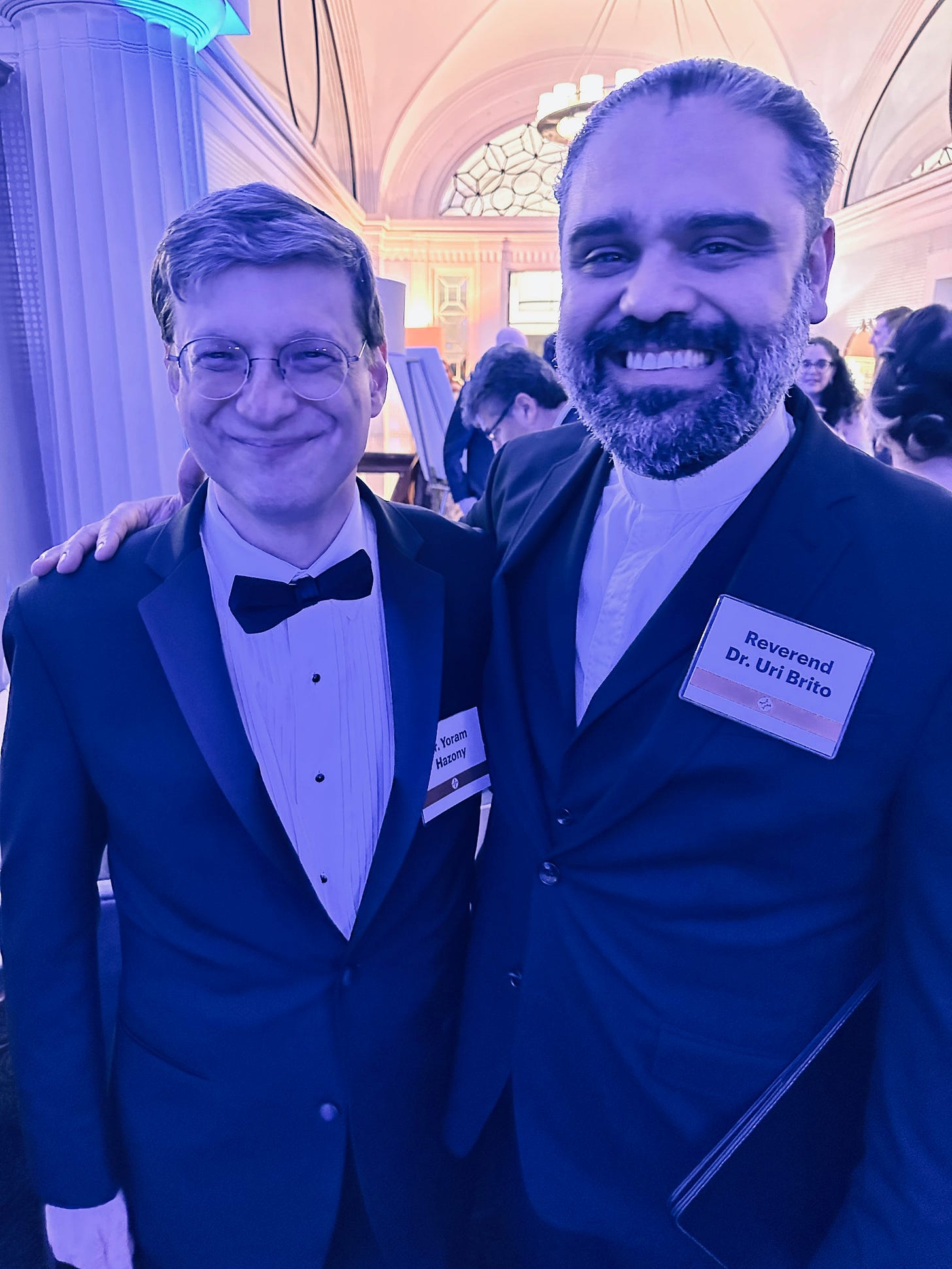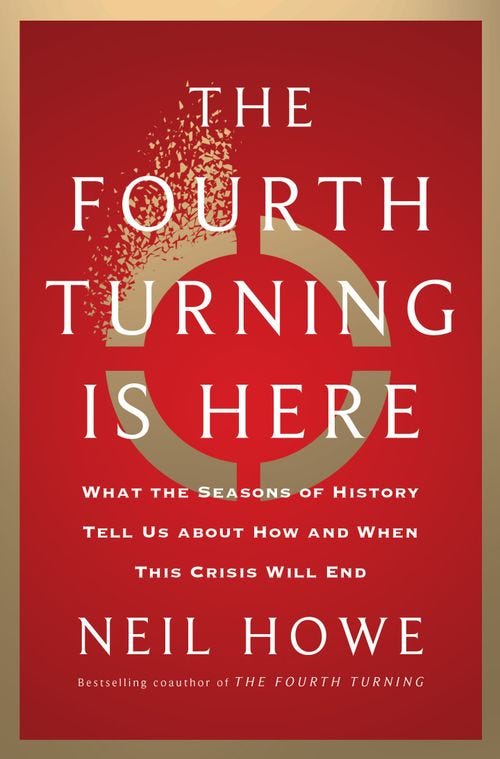#NATCON updates on Day 1
Some will say I am calling America a Christian nation, and so I am. Some will say I am advocating Christian nationalism, and so I am.-Hawley
I arrived in D.C. after an uneventful trip. My last few American Airlines excursions have led to 24-hour sabbaticals in strange places. Thankfully, my short flight to D.C. was only delayed by 15 minutes; unfortunately, a common expectation these days.
When my driver arrived to pick me up at DCA, I noticed quickly that not all Uber drivers are created equal. My 5-7 drivers in London were terrifyingly tedious. While only a few spoke English, the ones that did offered no substance. I tried to begin a few conversations but got nothing. The ones here in D.C. have always offered friendly interactions that satisfy my Latin expectations for the brief journey to the hotel. I had a delightful conversation about religion, living in D.C., and the limits of power. That was a pleasant entry as I returned to the capital for the third time in the 18 months.
When I arrived at the hotel, I was immediately greeted by familiar faces. It was especially delightful to see Father Ben Kiely. Kiely offers the Catholic invocation at #natcon, and I generally close the event with the Protestant one. In fact, last night at the dinner, we were mentioned as the Catholic and Protestant official/unofficial clerics. I felt very matrixy!
I will deliver my invocation on Wednesday morning. People have asked me what these invocations look/sound like, and I tell them they are academic prayers. They serve as mini-homilies, an opportunity to say things Catholically or Protestantally. Thus far, they have never limited what I can say, and at the moment they do, it will mark the end of my time at #NATCON. We will see how they react to my invocation on Wednesday, which is slightly longer than my previous one in Miami and the gala in D.C. some months ago. The last time I was interrupted by environmentalist wackos (as you can read here), this time, I can only imagine a peaceful transition of power.
I have prayed in senatorial debates, political inaugurations, political galas, and conferences. When I am invited to deliver these invocations, I aim not to offer a masqueraded lecture but to articulate a vision of how I see the world and how I wish it to be under the reign of Jesus. I hope to post the prayer on Thursday or Friday to my paid subscribers.
First Day of #NATCON
The first day began with Morning Prayer at 8:05. It was great to spend some time reading Scriptures and working our way through the Book of Common Prayer. It was a refreshing way to begin the day. It was also lovely to see Scott Yenor, Jason Jewell, Jack Waters, and Clifford Humphreys. They are all terrific gifts to the church, and I count it a joy to begin the day with these brothers.
The morning sessions opened with Dr. Yoram Hazony encouraging us to unite and fight for conservatism and the restoration of American tradition. Yoram is a gem and I am always astounded by his demeanor and courage. We had a chance to talk at least three times in the last 24 hours.
The afternoon panel on the damage of pornography on young kids was terrifying. I will have some more thoughts on it once the video comes out, but Megan Bashan did a splendid job moderating, and the presenters portrayed a picture that was monstrous enough to convince anyone that pornography needs to be abolished federally.
Senator Hawley closed the evening with bold affirmations that would make Ayn Rand disciples cringe:
Some will say I am calling America a Christian nation, and so I am. Some will say I am advocating Christian nationalism, and so I am.
Hawley offered an Augustinian vision for a Christian nation. He was quite insightful and inspiring. The evening was even more interesting because I sat beside a foreign policy expert for the Royal Historical Society. We talked for some time about foreign policy, his upbringing in South Asia, and his lapsed faith. I will pray that God would stir him to return to the Anglican Church from where he was raised.
The conversations overflowed to a new acquaintance from Jerusalem. He is a professor of American History in Tel Aviv. I asked many questions, and he was articulate enough to engage all the subjects I raised. We further talked about the Presbyterian history and polity of the CREC. He seemed intrigued.
The whole evening was splendid and ended with an interview with a Conservative Australian news network who wanted to hear my thoughts on Senator Hawley’s speech. If I ever locate that interview, I will make it available.
Tomorrow will be the long-waited panel discussion between Doug Wilson and Al Mohler. I have been looking forward to this for quite some time. The #moscowmood is strong around here. I have already seen at least 15 folks associated with Moscow. It has been a fun reunion.
Notations
Among my many unique relationships over the years, Dr. Yoram Hazony makes the top-five list. He has encouraged me on crucial points in my Protestant endeavors. And he is a Jew. My first meeting with him at #NATCON 3 in Miami was delightful. He was the first to greet me and encourage me after my invocation. I will treasure that moment.
Among the many works I am reading these days, I have started my slow perusal through his 450-page tome, Conservatism: A Rediscovery. The introduction is a lucid portrayal of what he means by conservatism. He asserts that it is a standpoint that regards the recovery, restoration, elaboration, and repair of national and religious traditions as the key to maintaining a nation and strengthening it through time.” (xx).
Yoram is seeking a restoration of what Daniel Webster refers to as “national conservatism,” a form of conservatism that is uninterested in Ayn Rand libertarianism and endless wars to bring liberalism to the Middle East. Insofar as this project sees the Protestant vision as the primacy of any national interest, Dr. Hazony and I are on very similar ground.
The Fourth Turning is a wild revelation of things to come. I am reminded of Rosenstack-Huessy, who spoke in historical patterns. For Howe, there are four turnings. I will summarize it in my own words:
a) Institutional Power, b) Challenging Institutions, c) Breaking Institutions, and d) Destruction of Institutions (see pg. 14).
On this final point, the overprotected youth seek to find their own way through chaos without any authority structures to guide them. They want to see the destruction of institutions. This dovetails well with Jonathan Haidt’s work The Anxious Generation, which argues that the new generation is undergoing a great rewiring that damages human relationships and hinders focus (17). They are destroying what they most need.
On Reading Fiction:
Men who do not read good fiction will struggle greatly to understand others. They will think mainly propositionally and mechanically treat others, expecting them to engage in a particular way; reading them through encyclopedic lenses.
Good fictional works allow men to see tenderness as a virtue, the good life to be explored, and relationships to be developed within a paradigm of grace and wonder.
Too often, the hardest men to counsel are those who are theologically well-read but fictionally deficient. They assert themselves over their families with brute dogmatism and fail to embrace the good story of each child or spouse.
Thanks for tuning in and for the support!
Uriesou Brito







Love the last paragraph Pastor!